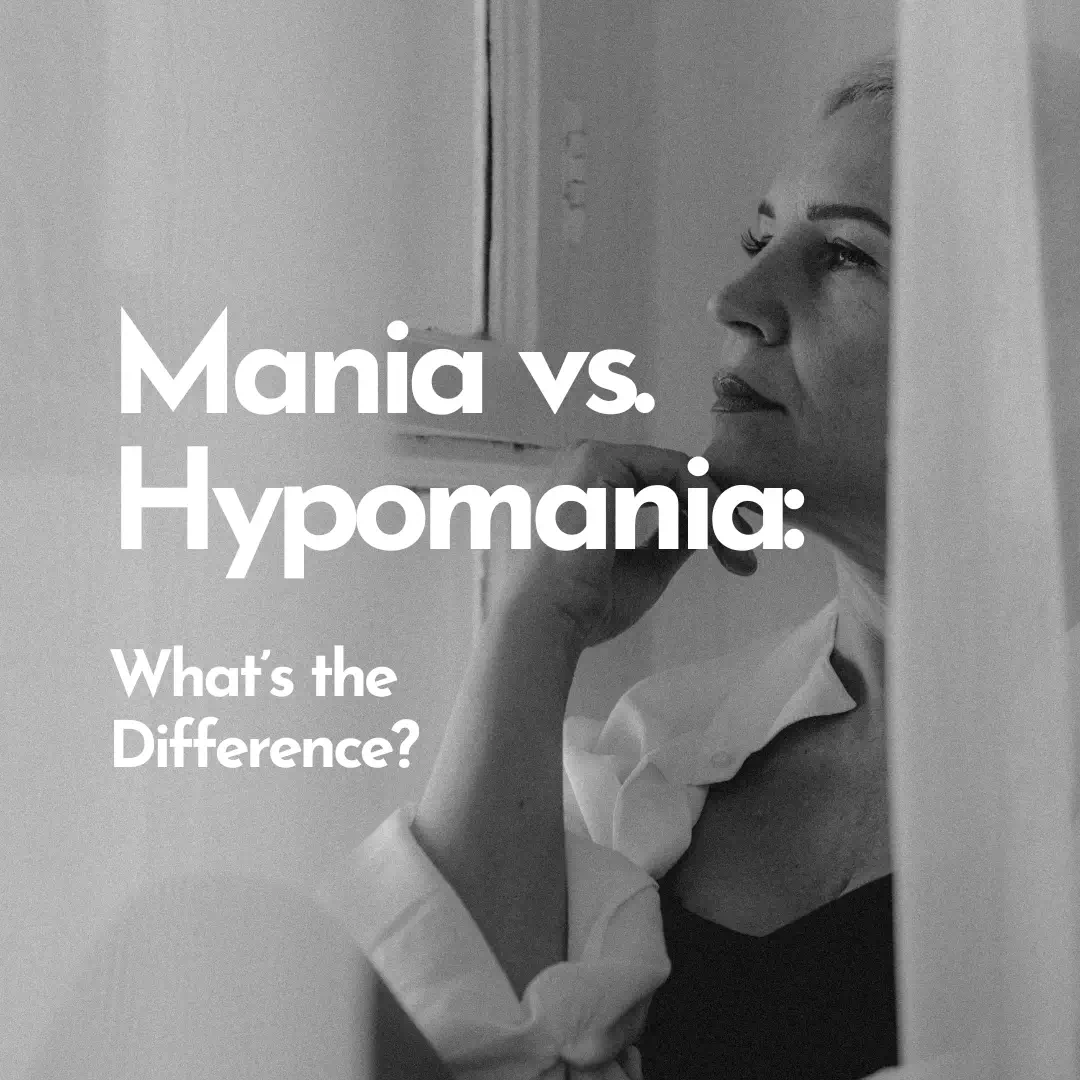In therapy, patients often share their fears and confusion around episodes of manic psychosis. They say things like, “It was like I wasn’t in control of my thoughts,” or “I felt invincible, but everyone around me was worried.” Manic psychosis is one of the most intense and disorienting experiences someone with bipolar disorder can face. It combines the energy and confidence of mania with a break from reality, making it essential to recognize and treat promptly.
Let me explain what manic psychosis feels like, why it happens, and how we can support those going through it.
What is Manic Psychosis?
Manic psychosis is a symptom of Bipolar I Disorder, typically occurring during a severe manic episode. It’s when mania—marked by high energy, racing thoughts, and impulsivity—is accompanied by psychotic symptoms, such as:
- Delusions: Fixed, false beliefs, like thinking you’re a famous celebrity or that you have superhuman abilities.
- Hallucinations: Sensing things that aren’t there, such as hearing voices or seeing things others can’t.
- Disorganized Thinking: Thoughts may jump rapidly, making speech confusing or difficult to follow.
- Unlike mania alone, manic psychosis involves a complete break from reality, which can put individuals at risk of harm to themselves or others.
What Does It Feel Like?
Patients in my office often describe manic psychosis as both exhilarating and terrifying. You might feel euphoric or empowered, convinced of your own greatness. Others have shared experiences of paranoia, feeling as though people were conspiring against them.
One patient explained it like this: “I felt like I was on top of the world, but no one else could see what I saw. It was so real to me, and I couldn’t understand why everyone was so scared.”
This disconnect between perception and reality is what makes psychosis so challenging—for both the person experiencing it and their loved ones.
The Aftermath: Shame and Trauma
In therapy, patients often talk about the feelings of shame that follow an episode of manic psychosis. They may struggle to reconcile their actions or beliefs during the episode with their sense of self, saying things like, “I can’t believe I did that,” or “What must people think of me now?”
For those who were admitted to an involuntary inpatient ward, the experience can be traumatic. Many describe feeling powerless, judged, or even unsafe. This trauma can linger long after the episode resolves, making it crucial to address these feelings in therapy.
As a psychologist, I work with patients to process these experiences, rebuild their self-esteem, and reframe their understanding of what happened. It’s essential to remember: these episodes are symptoms of an illness, not reflections of who you are as a person.
Why Does It Happen?
Manic psychosis occurs when the brain’s systems for mood regulation and reality perception become overstimulated. Factors like sleep deprivation, stress, or untreated mania can increase the likelihood of psychotic symptoms.
It’s important to remember that manic psychosis isn’t a personal failure—it’s a symptom of a medical condition. With the right treatment, recovery is absolutely possible.
How Do We Treat It?
Immediate Care:
Hospitalisation may be necessary if someone is a danger to themselves or others. This provides a safe environment for stabilization.
Medication:
Antipsychotics (e.g., olanzapine or quetiapine) are used to manage psychotic symptoms quickly.
Mood Stabilizers (e.g., lithium or valproate) help regulate the underlying mania and prevent future episodes.
Therapy Post-Recovery:
Once stabilized, therapy focuses on understanding triggers, building coping strategies, and processing any shame or trauma from the episode or hospitalization.
Lifestyle Adjustments:
Sleep hygiene, stress management, and routine mood tracking can help prevent relapses.
Compassion and Understanding
As a psychologist, I often remind patients and their families that manic psychosis is a medical condition—not a character flaw. Recovery requires patience, understanding, and a strong support system.
If you or a loved one has experienced manic psychosis, know that you’re not alone. Processing the experience, including any shame or trauma, is a vital part of healing. With the right treatment and care, stability is possible.
For more strategies and support, visit my on-demand e-learning course page here or join the My Bipolar Therapy community here for expert resources tailored to your journey. 🌟




